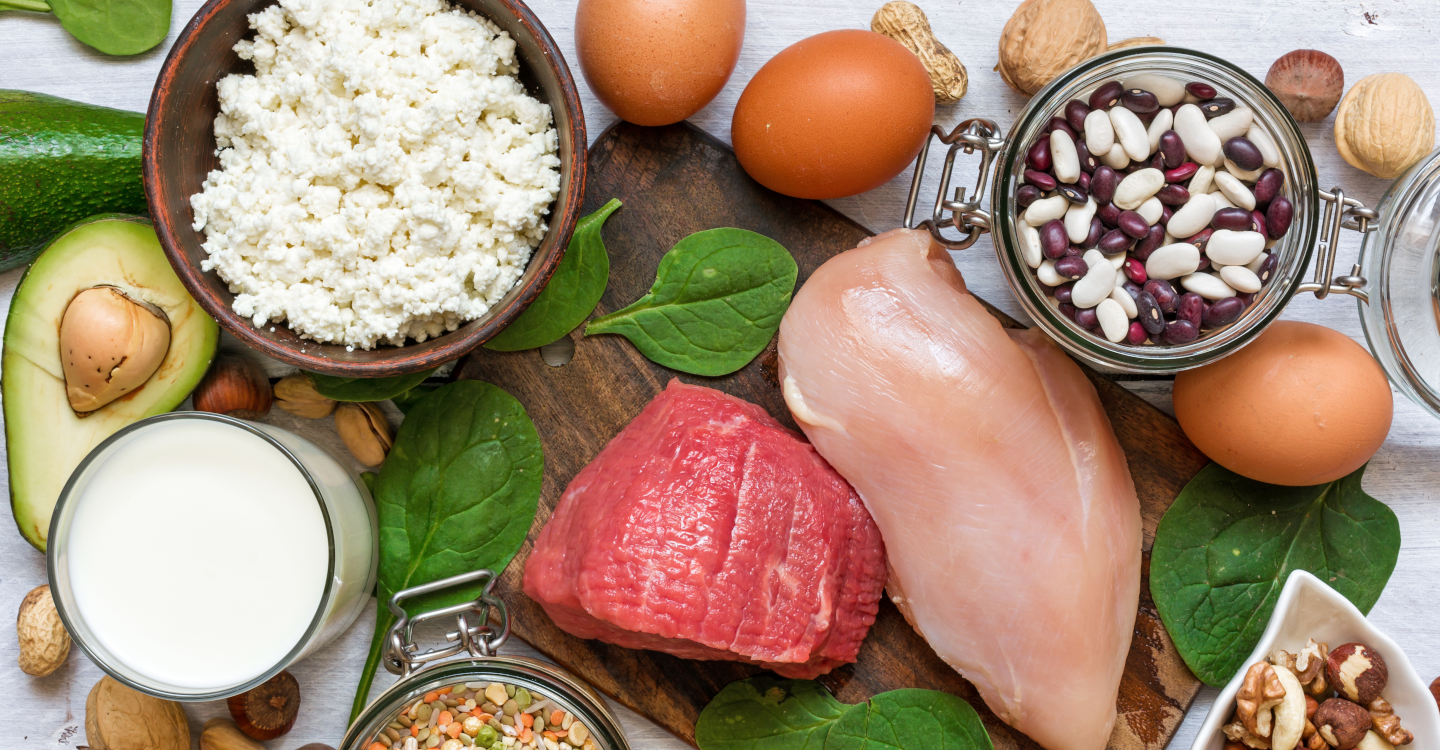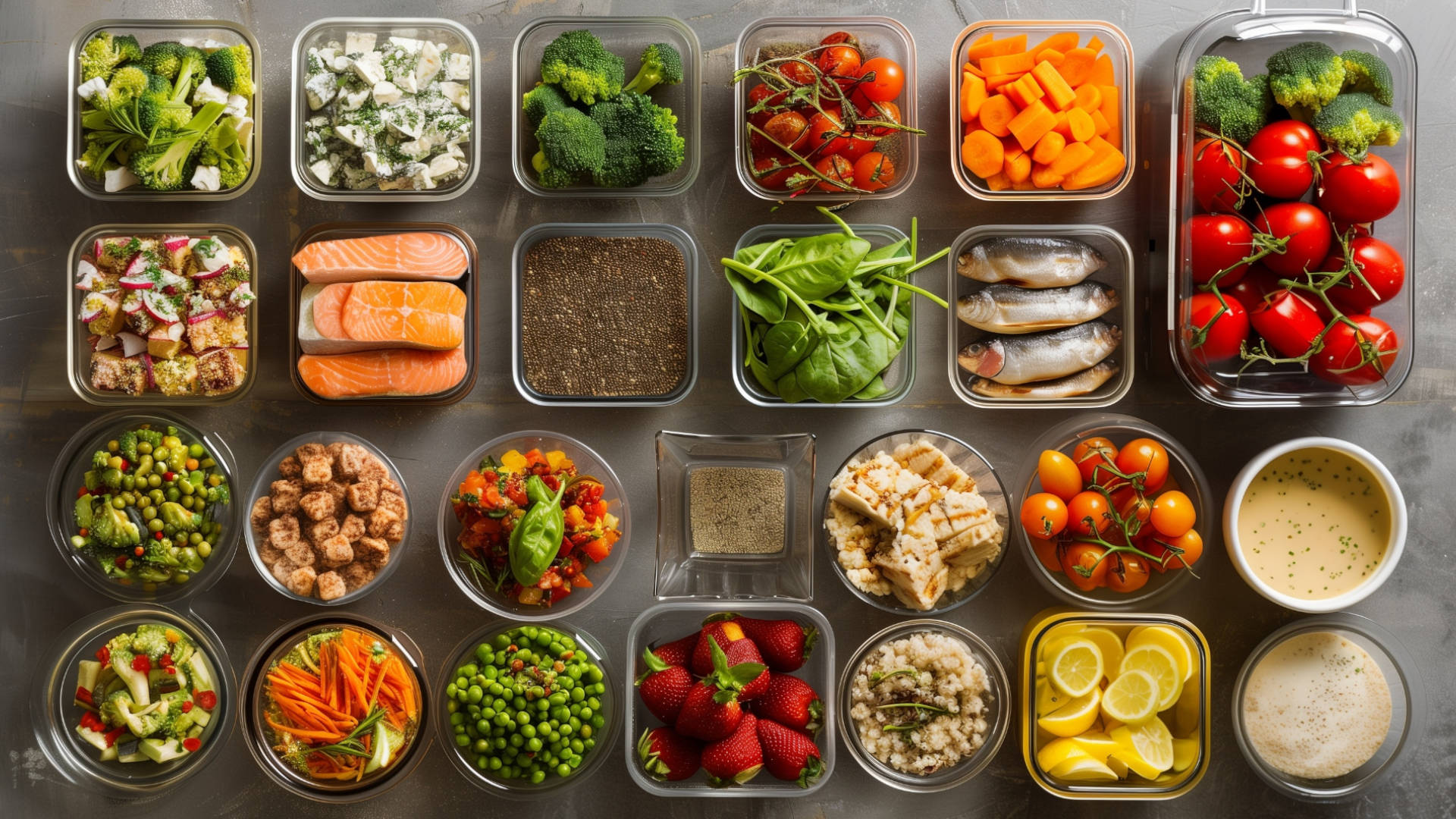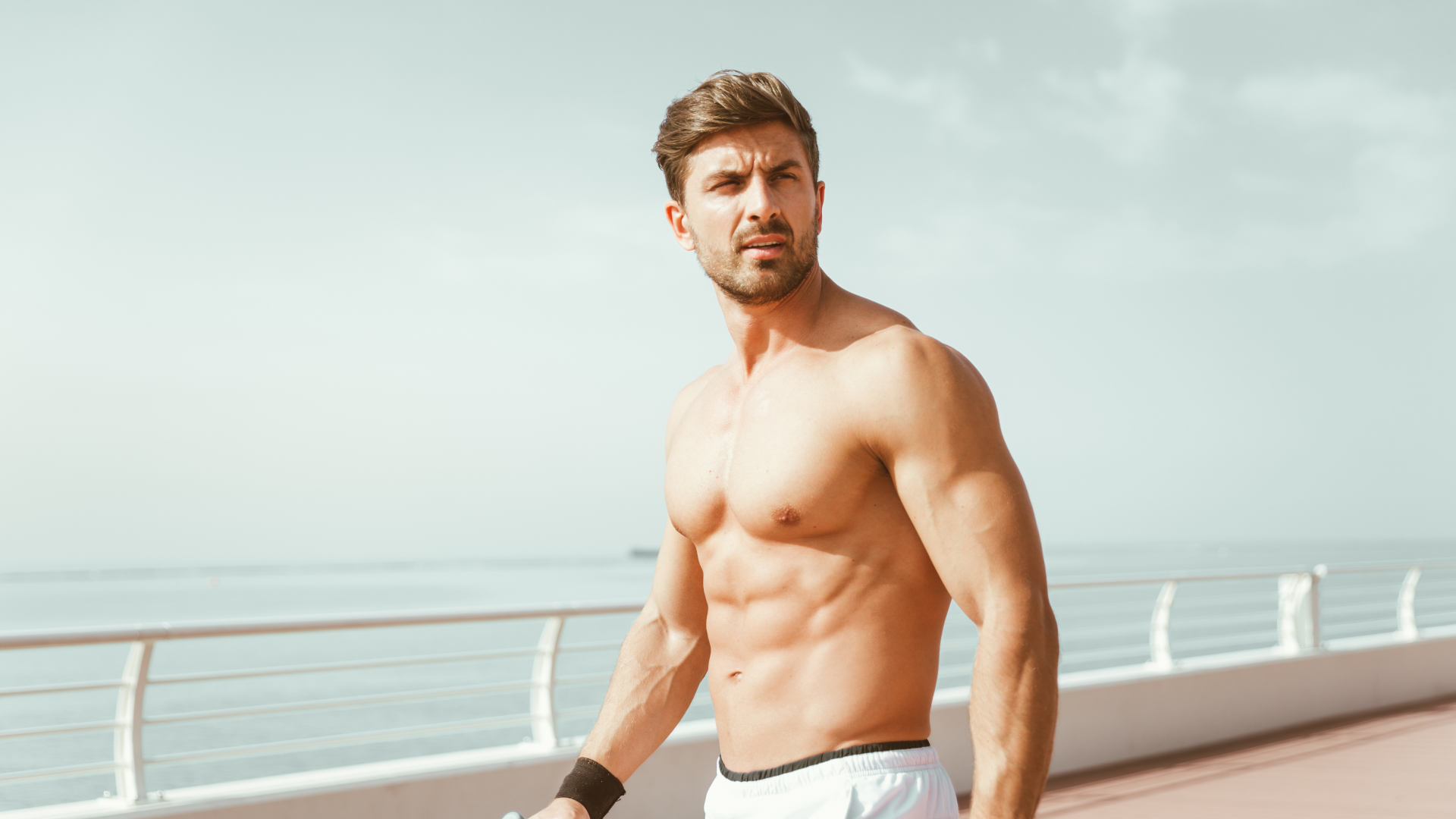Hack Beast Mode |
If you're a bodybuilder, you already know that protein is the name of the game. It’s the building block of muscle as well as the mainstay in your meals.
But how do you know if you’re getting enough protein? And how do you know if you’re eating too much?
Here we’re gonna give you the lowdown on the protein game. From learning how much protein you need to go for those epic gains to all the muscle-building snacks, supplements, tips, and tricks to give you that extra performance-powering boost.
Why do we need protein for muscle building?
When it comes to packing on muscle mass and maximizing your gains, protein is your best friend. Picture it like this…your muscles are like a high-performance engine that needs the right fuel to function at its best. That fuel is protein.
During intense workouts, your muscles undergo stress that can lead to tiny tears in the muscle fibers. This isn't a setback—it's actually a super important part of the muscle-building process.
Here's where protein steps in. Through muscle protein synthesis (MPS), the amino acids in protein swoop in like superheroes to repair and rebuild those muscle fibers, making them stronger and bigger than before.
But protein isn't just about muscles. It's a powerhouse macronutrient that plays a vital role in loads of bodily functions.
Why is protein crucial for building muscle?
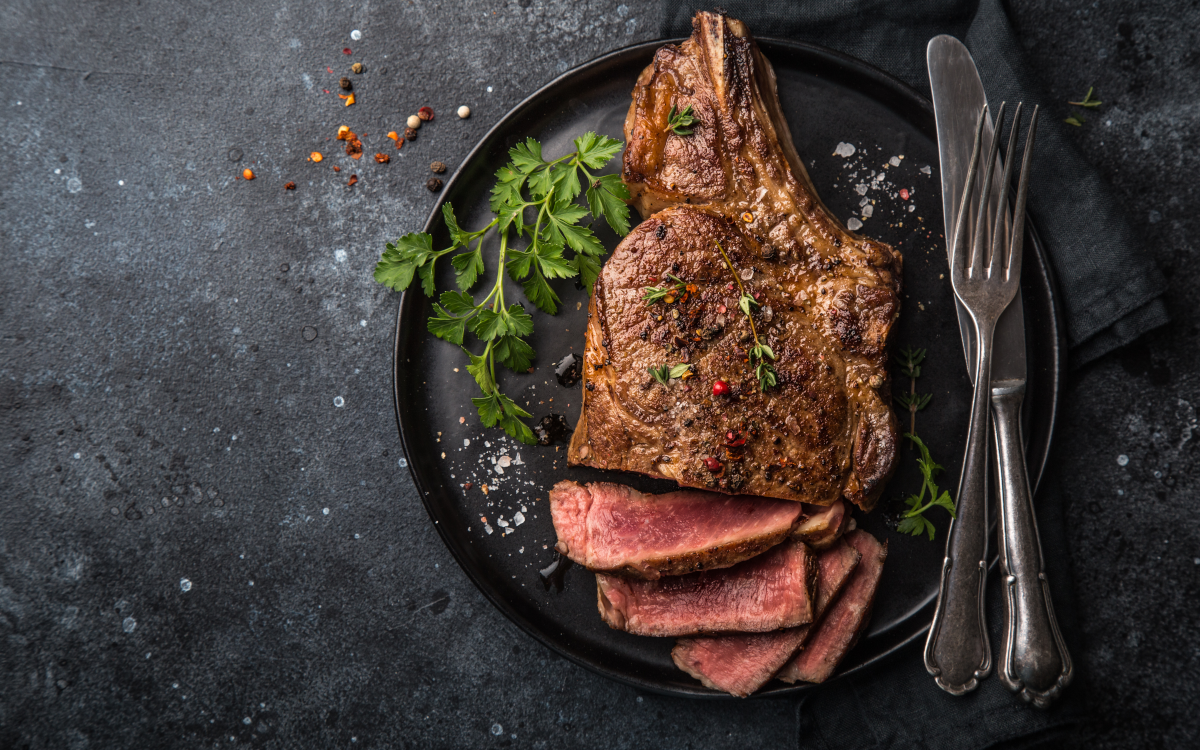
Let’s quickly take a look at the reasons why protein is so important for making you swole.
- Muscle protein synthesis. Protein's amino acids mend those micro-tears in your muscles, paving the way for serious muscle growth when paired with targeted training.
- Enzyme production. Proteins are the building blocks for enzymes that drive essential metabolic processes in your body, helping you perform at your peak.
- Blood sugar stability. Protein slows down carb absorption, preventing those annoying blood sugar spikes and crashes that can derail your gains.
- Immune support. Keep your defenses strong with protein which fuels the production of immune-boosting antibodies to fend off illnesses.
- Overall gains. Protein not only helps you get ripped but also keeps you feeling full, aids in weight management, and safeguards your hard-earned muscle mass—even when cutting calories.
How much protein do I need to build muscle?
First, you need to factor in weight, gender, fitness level, and goals. But there are some general guidelines for protein intake you can follow.
Protein intake for men
For men looking to build muscle, the recommended range is around 0.6 to 0.9 grams of protein per pound of bodyweight per day.
This means that a man weighing 180 pounds would aim to consume between 108 and 162 grams of protein daily.
Protein intake for women
Women can follow a similar guideline, aiming for about 0.6 to 0.8 grams of protein per pound of bodyweight per day.
This means a woman weighing 150 pounds would aim to consume between 90 and 120 grams of protein daily.
Top Tip: You can use a Protein Calculator to work out your specific daily protein needs.
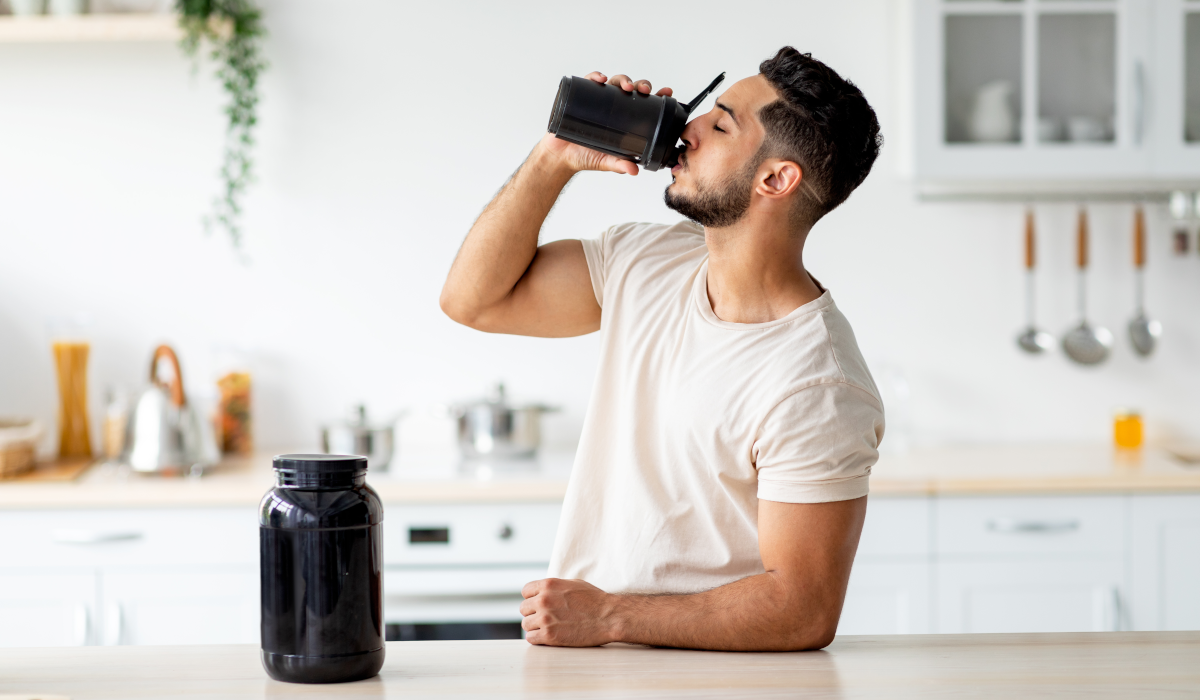
Top 5 tips on how to increase your protein intake
Learn these top tips on increasing protein intake and you’ll never look back. From delicious high protein foods to plant-based protein sources, protein powders and timings—we’ve got you and your muscles covered.
Timings
To build muscle, you need to have enough protein spread across all your meals and snacks, not just in one meal.
Here’s a rough plan…
- Breakfast. Including protein-rich foods such as eggs, plain Greek yogurt, or protein shakes in your breakfast.
- Pre-workout. About one to two hours before working out, eat protein in the form of a meal, supplement or snack containing both carbohydrates and protein.
- Post-workout. Consuming protein within a few hours after exercise can support muscle recovery and growth. The most easily digested protein source is whey protein, but you can have a protein-rich snack instead.
- Daily protein intake. Spread your protein intake evenly throughout the day to optimize muscle protein synthesis.
Prioritize protein-rich foods
- What to do. Make protein-rich foods a priority in your meals and snacks. Choose your protein then build out your meal or snack from there.
- How to do it. Choose lean meats like chicken breast or turkey, and add fish like salmon or tuna, including eggs, Greek yogurt, tofu, edamame, and legumes like lentils or chickpeas in your diet.
- Examples. Grilled chicken breast with roasted vegetables, Greek yogurt topped with berries and nuts, scrambled eggs with spinach and feta cheese, lentil soup, or grilled tofu stir-fry.
Use raw proteins
Why are raw proteins great for gains, exactly?
- These are protein sources that are non-cooked. Things like cottage cheese, canned tuna etc.
- You can eat non-cook protein sources in larger amounts which means greater intake. Options like Greek yogurt, cottage cheese, or protein bars can easily be added to meals or consumed as snacks, providing an additional protein boost.
- These types of food are easy to eat to hit your protein macros, fast and without cooking. Ideal for budding muscle-builders with super busy schedules.
- They also involve minimal processing, so the natural protein content remains high and the quality is high. Having non-cook protein sources ensures a diverse amino acid profile, promoting optimal muscle growth and repair. Boom.
Bigger portions and toppings
Increase the protein content of salads, soups, or grain bowls by adding extra toppings like grilled chicken, tofu, chickpeas, or hard-boiled eggs or have two chicken breasts instead of one or add an extra serving of beans or lentils to your dish. Simple but effective.
Choosing animal protein
Did you know? Animal-based foods like those in meat, poultry, fish, eggs, and dairy products, are considered "complete" proteins.
This means they’ve got all the essential amino acids your body needs for getting swole. Animal proteins provide a Hulk-like combination of essential amino acids, meaning they contribute to you bulking up in a big way.
Animal proteins also have a high biological value, meaning they’re absorbed and utilized easily by the body. And not only that, they are a rich source of essential nutrients which the body needs to thrive.
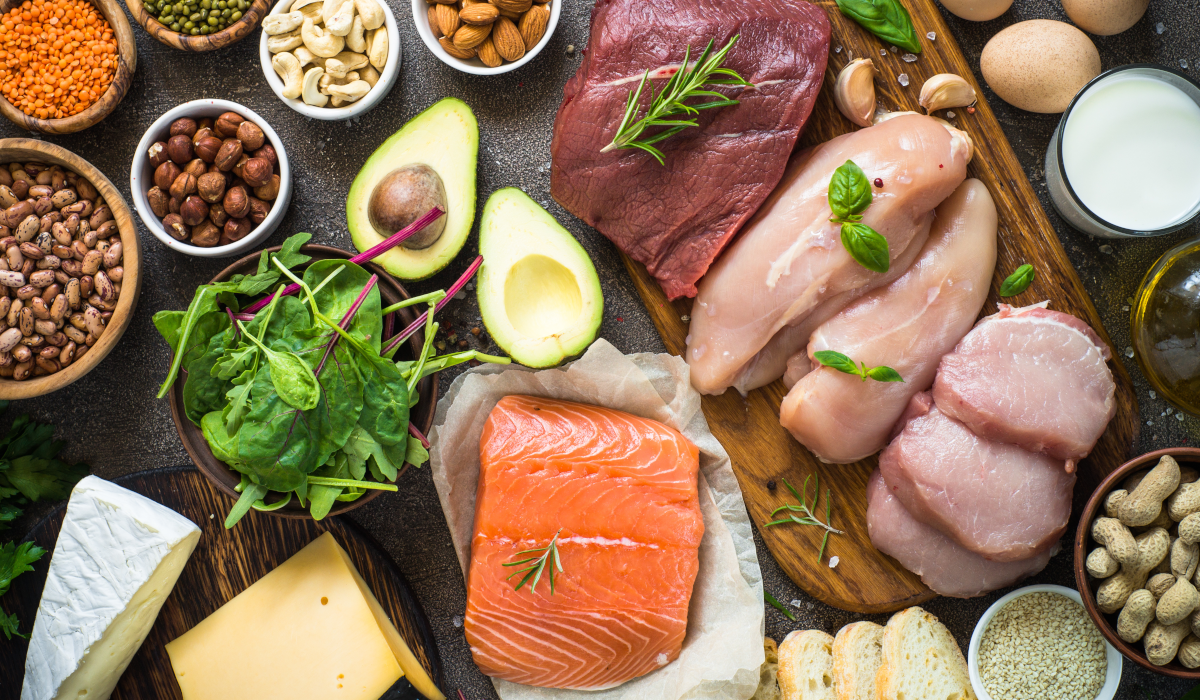
The best foods for building muscle
Let's take a look at the best foods you need for a high protein diet. From breakfast foods to high protein snacks and supplements, we’ve put together the protein-perfect foods for the meat-eater diet, vegetarian diet and vegan diet.
But first take a look at the hottest top ten foods packed full of protein. It’s good news for meat eaters, vegetarians and vegans as there’s something in there for everyone.
Top 10 protein-packed foods
- Chicken Breast. With approximately 31 grams of protein per 100 grams.
- Turkey Breast. Yes, it provides around 29 grams of protein per 100 grams.
- Tuna. Tuna offers about 26 grams of protein per 100 grams.
- Salmon. Contains roughly 25 grams of protein per 100 grams.
- Greek Yogurt. Greek yogurt can provide up to 10 grams of protein per 100 grams.
- Cottage Cheese. It contains about 11 grams of protein per 100 grams.
- Lentils. Lentils offer around 9 grams of protein per cooked 100 grams.
- Quinoa. Contains approximately 4 grams of protein per 100 grams.
- Eggs. Eggs provide about 13 grams of protein per 100 grams.
- Almonds. Almonds offer roughly 21 grams of protein per 100 grams.
Now, let’s talk diet-specific protein.
Meat Eaters
Foods
Lean Meats
Chicken breast, turkey breast, lean beef, and fish like salmon and tuna are excellent sources of high-quality protein.
Eggs
They are a complete protein source and also contain healthy fats and other nutrients.
Snacks
Greek yogurt
High in protein and also offers calcium and probiotics.
Cottage cheese
High in protein and easy to incorporate into snacks or meals.
Beef jerky
A portable and high-protein snack option.
Supplements
Whey protein powders
A popular and easily digestible protein supplement derived from milk.
Creatine powders
Helps increase muscle strength and performance during high-intensity exercises.
Vegetarians
Foods
Legumes
Lentils, chickpeas, and black beans provide a good amount of protein, fiber, and other big-hitting nutrients.
Quinoa
A complete protein source and also contains carbohydrates and minerals.
Greek Yogurt and Cottage Cheese
Vegetarian-friendly sources of protein.
Snacks
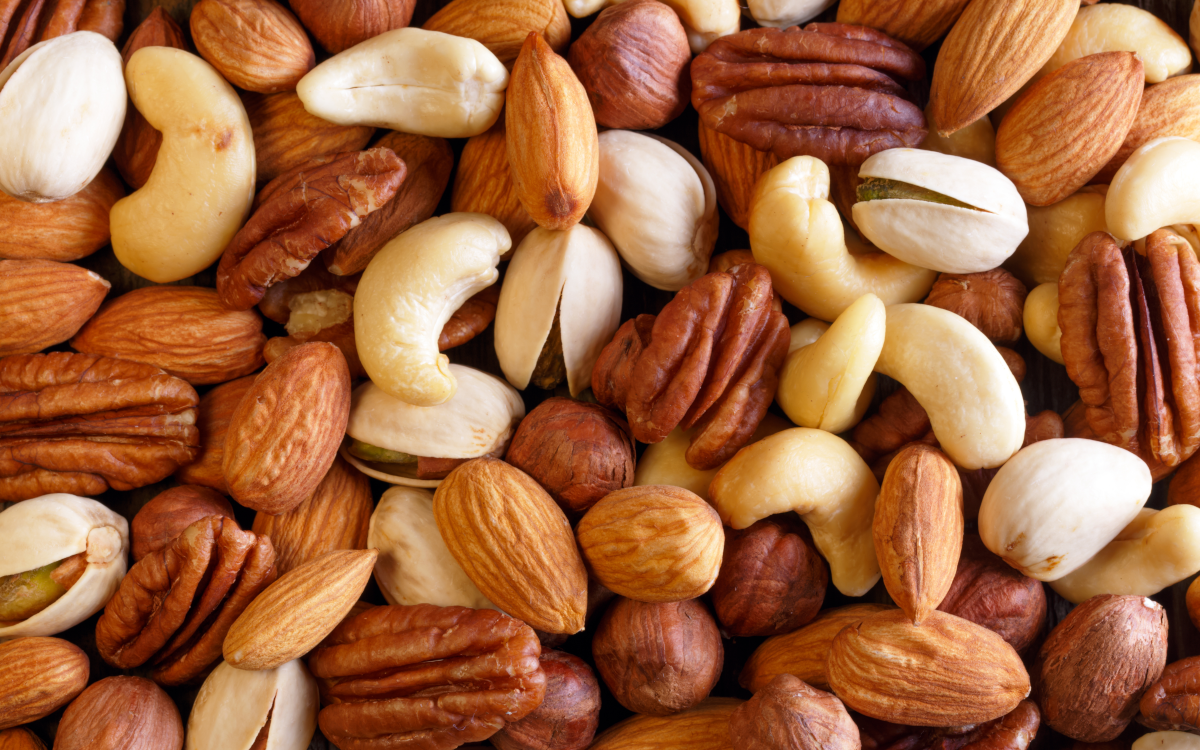
Nuts and nut butter
Almonds, peanuts, and cashews are high in protein, healthy fats, and other essential nutrients.
Edamame
Young soybeans that are packed with protein, fiber, and awesome antioxidants.
Supplements
Plant-based protein powder
Made from sources like pea, rice, or hemp, it provides a convenient protein boost.
BCAAs (Branch Chain Amino Acids)
Amino acids that help with muscle recovery and can be found in supplement form.
Vegans
Foods
Tofu and tempeh
Soy-based products that are high in protein and can be used in various dishes.
Legumes
Beans, lentils, and chickpeas are important protein sources for vegans.
Quinoa and buckwheat
Complete protein sources that offer a range of other nutrients as well.
Snacks
Hummus
Made from chickpeas, it provides a good dose of protein and healthy fats.
Vegan protein bars
Many options are available on the market, made from plant-based proteins like soy, pea, or rice.
To hit your protein target and fuel those gains, load up on protein-rich powerhouses like legumes, seeds like chia and hemp, and whole grains for a diverse protein lineup.
When it comes to snacks and meals, don't hold back on the protein punch. Go for high-protein options like nut butters, natural peanut butter, or almond butter to keep you satisfied and on track with your gains.
All in all, you need a balanced diet with a protein rich base. Don’t scrimp on complex carbohydrates either as these are also great energy boosters. If you don’t think you can hit all your protein macros in your meals try supplementing like the pros.
More on that soon.
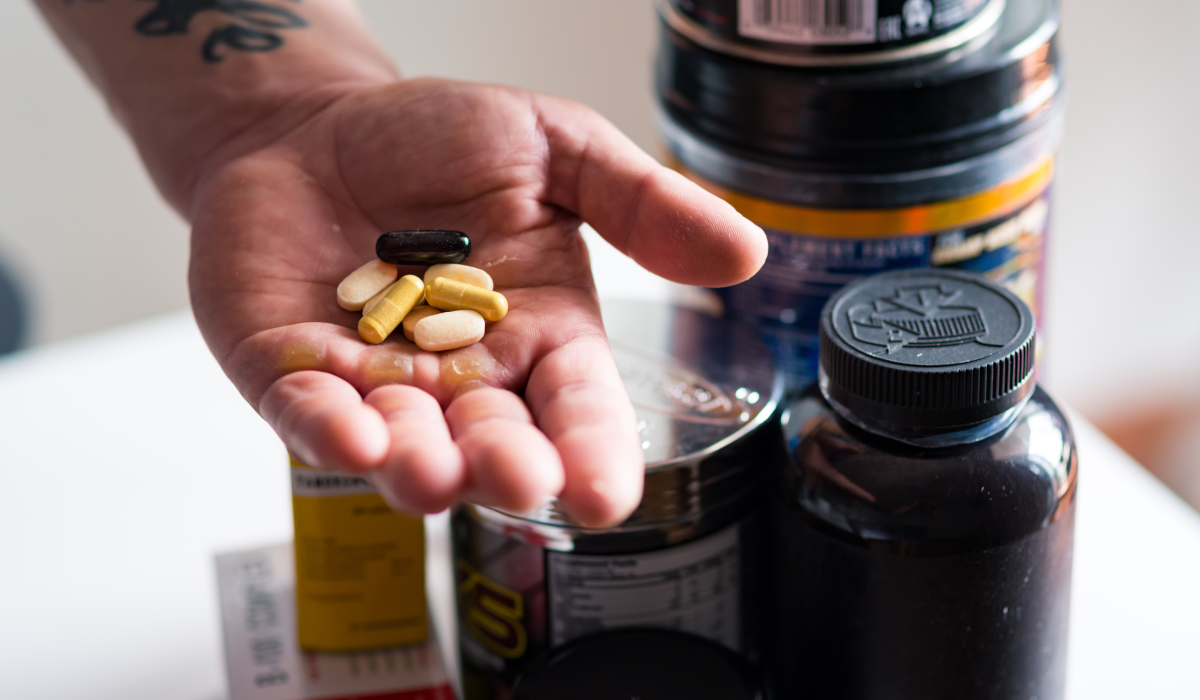
The best supplements for building muscle
When it comes to fueling your gains and sculpting your muscle tissue, there are a ton of supplements worth considering.
Let’s take a look.
Protein supplements
Protein is the gold standard for muscles, as you know.
Look for high-quality protein supplements like whey protein, casein protein, or plant-based protein. These powders concentrated sources of amino acids, the building blocks of muscle.
They're perfect for post-workout recovery and muscle growth. Mix 'em up with water, milk, or your favorite smoothie, and sip away.
Top tip: Consume protein supplements within 30 minutes to an hour after your workout to kickstart muscle recovery.
Creatine
What does it do, exactly? It helps increase energy levels, enhance strength, and promote muscle growth. You can find creatine monohydrate, creatine blends, or even creatine in pill form.
Start with a loading phase for a few days, then switch to a maintenance dose. Prepare for some serious lifting and explosive gains!
Top tip: Take creatine pre or post-workout to maximize its benefits. A dose of three to five grams per day is typically recommended.
Branched-Chain Amino Acids (BCAAs)
BCAAs are the superheroes of muscle recovery! Leucine, isoleucine, and valine are the powerhouse trio that helps prevent muscle breakdown, reduces muscle soreness, and supports muscle repair.
Tip top: Find BCAAs in powder or capsule form and take 'em before, during, or after your workout to keep those muscles fueled and ready for action.
Beta-Alanine
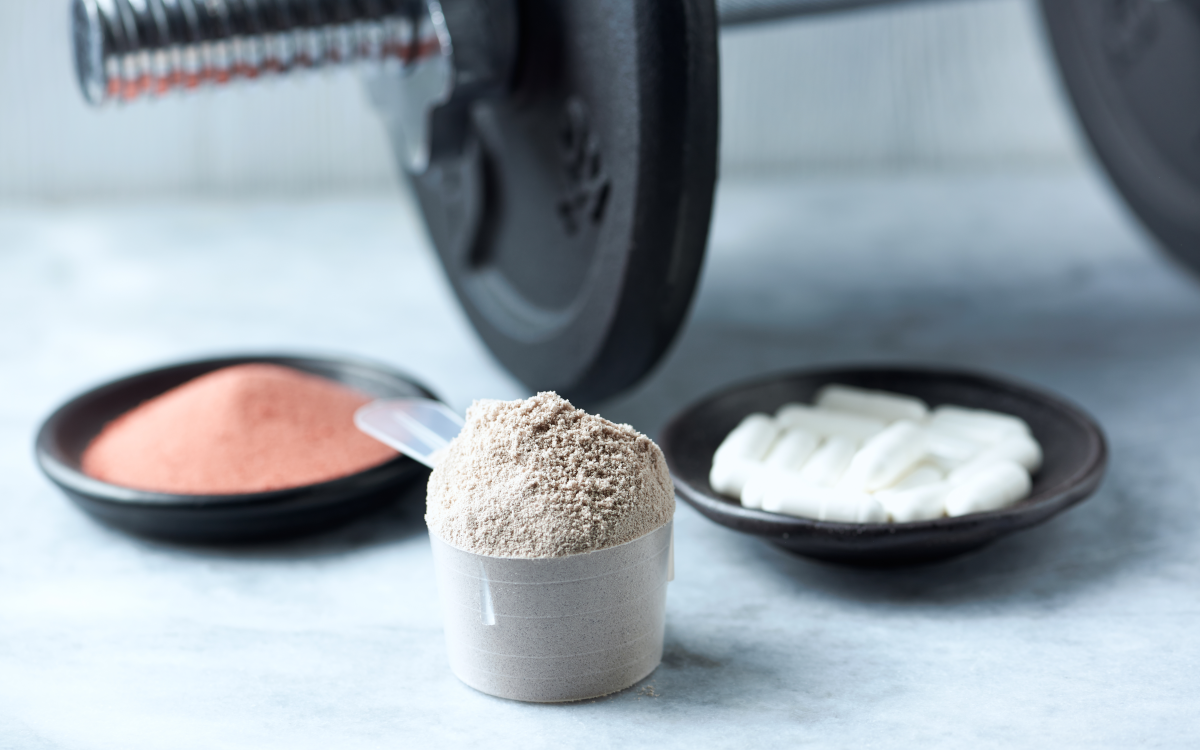
Need more endurance and less fatigue? Beta-alanine to the rescue! This amino acid helps buffer lactic acid buildup, allowing you to crush your workouts and push harder for longer.
Look for beta-alanine in powder or capsule form and you can consume them before, during, or after your workout to support muscle recovery and reduce muscle breakdown.
Top tip: Take beta-alanine pre-workout to saturate your muscles with this energy-boosting amino acid. Most recommendations suggest a daily dose of two to five grams.
Protein timings
It isn’t just about what you eat but when you eat.
So, what’s the deal?
So, what’s the best timing of protein intake?
Make sure you include a source of protein in each meal to aid in muscle building and repair. This means aiming for around 0.4 to 0.5 grams of protein per kilogram of body weight in every meal to reach your ultimate swole.
If you’re an exercise regular, go for the suggested "anabolic window" of 15-60 minutes after exercise, during which consuming protein is recommended to support muscle repair and growth.
So hit the high protein food after exercise and throughout the day to gain muscle the safe and easy way.
But it isn’t just protein to snack on. Ideally your muscle-fueling meal or snack should include a mix of protein, carbs and healthy fats after you exercise. This combo provides a more comprehensive source of nutrients.
Carbs work to replenish glycogen stores, while healthy fats support your nutritional profile and of course, are super satisfying to eat.
Bulk up with Crazy Bulk…
You put your all into your gym work. So hitting your protein macros shouldn’t be such a labor of love. You can complement your protein intake and boost your muscle gains even further with our legendary Bulking Stack.
Complete with four premium, natural products to boost testosterone, muscle gains, strength, performance, and post-workout muscle recovery, it’s the stack that will get you…stacked like a beast. Go get some.
Over 299,434 purchases
Over 509,389 bottles sold
Over 30,563,340 pills taken
